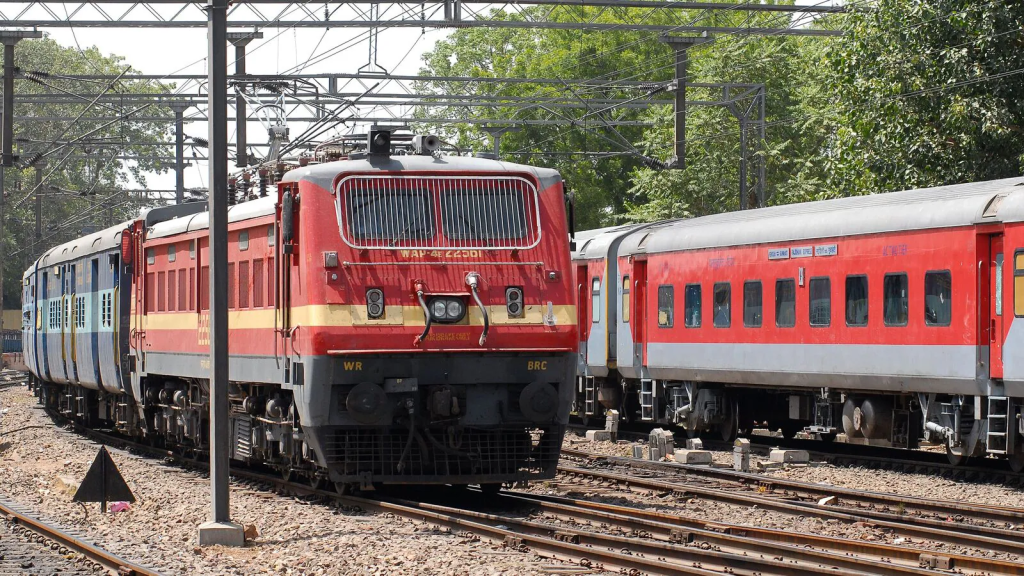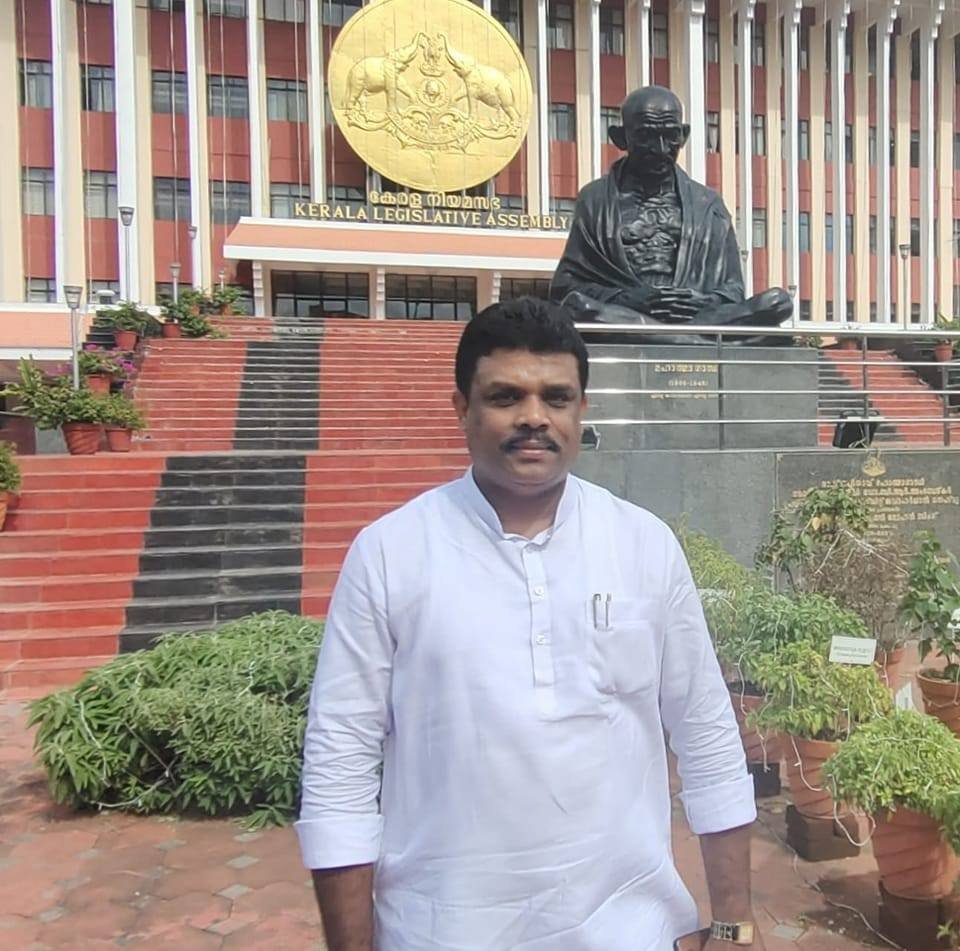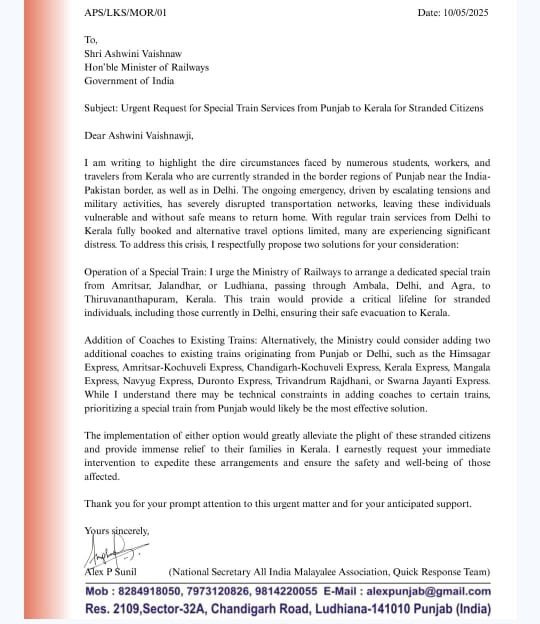Special Train from Nizamuddin to Kerala Amid Border Tensions: A Timely Response to a Humanitarian Need

Background: War-like Situations at the Borders
Amidst escalating war-like conditions near the border regions of Punjab and Kashmir, panic and uncertainty gripped many, especially students and Malayalee residents living in these sensitive areas. With transportation severely disrupted and safety becoming a growing concern, hundreds of Malayalees began moving towards Delhi, hoping to find a way back home to Kerala.
The Crisis and the Need for Immediate Action
As the situation intensified, students and other individuals from Kerala who had arrived in Delhi were left stranded without a clear means of returning to their home state. Recognizing the urgency and humanitarian need, the All India Malayalee Association (AIMA) activated its Quick Response Wing to intervene and facilitate a safe passage for these individuals.
AIMA’s Intervention: Quick Response and Strategic Action
Taking swift and decisive action, Shri Alex P. Sunil, the National Secretary of AIMA’s Quick Response Wing, took the matter into his own hands. He immediately reached out to the Chairman of the Railway Board, briefing him about the ground realities and the pressing need for a special train to transport the stranded Malayalees.
Following this, as per the Chairman’s advice, Alex Sunil submitted a formal request via email to the Honourable Railway Minister. Moved by the situation and urgency, the Railway Minister quickly directed concerned officials to take the necessary steps.

From Punjab to Delhi: The Logistical Shift
Initially, the authorities considered scheduling a special train directly from Punjab. However, upon reviewing the situation, it was revealed that most of the Malayalee population had already moved to Delhi, making it more practical and efficient to start the train from Delhi rather than Punjab. This strategic adjustment led to the decision of initiating the special train from Hazrat Nizamuddin Railway Station in Delhi.
Official Notification and Coordination
Early this morning, the Railway Notification was released and immediately shared with the National Secretary of AIMA QRT. The information was disseminated across various student hostels, Kerala House, and other accommodations in Delhi where the Malayalee students and residents were staying.
All individuals were requested to report at Hazrat Nizamuddin Railway Station by 2:00 PM to board the special train.
Acknowledgement and Gratitude
The timely intervention and empathetic response from the Railway Minister was a relief for the stranded citizens. Shri Alex P. Sunil, on behalf of the All India Malayalee Association’s Quick Response Wing, expressed sincere gratitude to the minister for recognizing the urgency and approving the special train without delay.

A Special Mention: Support from Mr. Rajeev Chandrasekhar
It is important to acknowledge the valuable role played by Mr. Rajeev Chandrasekhar, former Union Minister, in making this effort successful. He personally introduced Shri Alex P. Sunil to the Railway Board Chairman and the Railway Minister, and strongly requested their support in ensuring the safety and return of the stranded Malayalee citizens. His timely intervention and influential backing played a crucial part in facilitating the approval of the special train from Delhi to Kerala. The All India Malayalee Association extends its heartfelt thanks to Mr. Rajeev Chandrasekhar for his commitment and genuine concern for the welfare of the community.
Conclusion: A Testament to Timely Support and Community Effort
This incident highlights the importance of proactive coordination between government institutions and community organizations during times of crisis. The swift action taken by AIMA’s Quick Response Wing and the responsiveness of the Railway Ministry ensured that hundreds of lives were safeguarded, and a potentially difficult situation was effectively managed.
As tensions continue along the borders, this effort stands as a shining example of humanitarian intervention, showing how compassion, communication, and quick decisions can create a lifeline for those in distress.